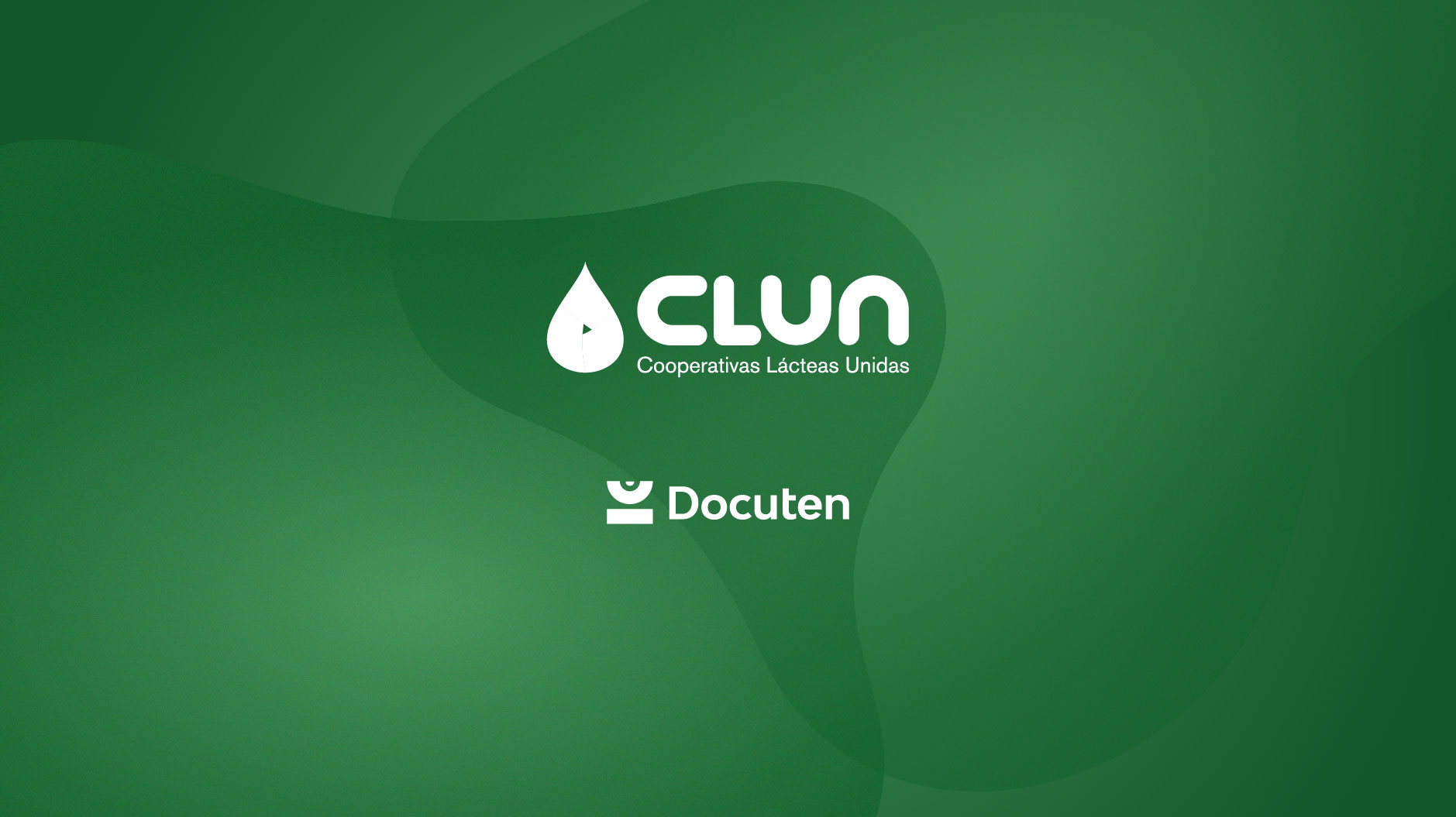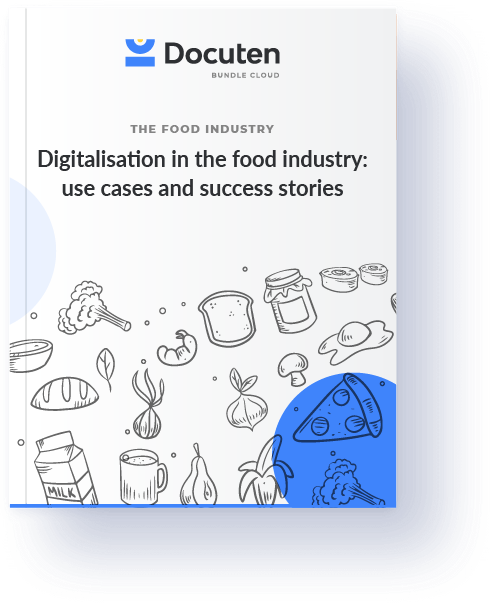Electronic invoice reception boosts sustainability in the food industry

Even though sustainability in the food industry is often discussed in the context of production (conserving freshwater resources, implementing less land-intensive processes or reducing greenhouse gas emissions), these are only some of the eco-friendly changes that can be made. What about improving sustainable practices through digital business tools like electronic invoice reception?

As with many different industries, companies in the food and beverage industry can advance their focus on sustainable policies and practices through digital business transformation. Traditional means of signing documents on paper, for example, often involves wasting resources that should instead be conserved and optimised. Relying on paperwork-intensive billing processes like receiving invoices on paper is similarly detrimental to the environment. Ultimately, administrative processes that use excessive amounts of paper are just not sustainable in the long term.
Docuten’s solutions have successfully resolved these issues for CLUN (United Dairy Cooperatives), a leader in the Galician agricultural and livestock sector. The cooperative needed a multifaceted tool that would enable them to easily sign labor and legal documents (like contracts with workers and partners) and to automate vendor invoice reception. The goal was to replace traditional paper processes with digital processes. Although there are a number of digital signature or online invoice software options on the market, only Docuten Bundle Cloud offers both solutions through a single provider.
Javier Cabana, IT Director at CLUN, explains below how sustainability is part of the company’s DNA, so finding a solution that allows them to eliminate paper from their offices was essential:
1. What is CLUN and what are its brand values?
The cooperative CLUN (Cooperativas Lácteas Unidas) resulted from the merging of Feiraco, Os Irmandiños and Melisanto with the aim of becoming a leading player in the Galician agricultural and livestock sector. CLUN has 3,500 partners who are provided with the best supplies and integral services necessary for the efficient operation of their farms. The activity of its dairy division is focused on the collection, packaging and distribution of milk and other dairy products under the brand names Únicla, Clesa, Feiraco, Almond Breeze y Arquega.
CLUN, in alignment with the most important European cooperative movements, has three strategic objectives that contribute to the sustainability of dairy farming: cost efficiency of production, quality of supplies, and volume aggregation to optimise the value chain.
2. Among the outstanding strategic elements to CLUN are its technological innovation and digitalisation. What have been the most relevant milestones implemented over the last year to ensure achievement of these objectives?
Principally, we work in two ways: first, we are involved in a large strategic project called CLUN-NEXO which consists of implementing different management tools, most of them legacy, with SAP implementation at the epicenter. Second, we aim for the implementation and improvement of a series of initiatives that we have identified in an effort to optimise processes and give us positive visible results in a short period of time with minimal effort. These include the process of managing expenses, permits and presence requests, and two of Docuten’s solutions: signing documents and receiving invoices.
3. I understand that CLUN gives a certain importance to sustainability. Do you think that administrative digitalisation provides an important basis when it comes to reducing the environmental impact of your cooperative?
For sure. Sustainability is in our DNA, and since we are pioneers in launching the first ZERO emissions milk (Únicla Entera), we want to be consistent in our actions. In that line, one of the objectives for the coming years is to reduce our of use of paper to ZERO. We would like to have a completely paperless office and we are focused on meeting that goal.
4. You have begun the process of digital transformation, what led you to think about digitalising document signing and electronic invoice reception? At what point were you at prior to working with Docuten?
The cooperatives that formed CLUN are companies that have been around for 40 to 50 years and paper was (and still is) present in many processes. We found ourselves dealing with inefficient processes, especially when it came to signing contracts or other notifications for workers and partners. Signing documents on paper often took several days, the documentation could be misplaced and the processing and filing process was very complex. Regarding invoice reception, we were considering implementing document management software but we saw an opportunity to move forward with the diverse functionalities of Docuten.
5. Digital transformation is the new reality. Once immersed in the world of digital processes, what are the most notable benefits for CLUN?
From my point of view, the most remarkable thing is that digitalisation allows our employees to dedicate time to processes that add value. It improves the quality of work and affects the entire value chain, which we can then translate to our customers, partners and vendors.
6. How has the internal transition been from traditional processes to new digital methods? Has it been easily accepted and seen as a positive change for internal and external staff?
With digitalisation, the key is people and processes. When analog processes are being carried out correctly, they are the easiest to digitalise because everything is already in order. The people handling these process can usually easily understand and assimilate with minimal training, and it is a less dramatic change.
However, sometimes people think that computer software or an IT solution is going to completely resolve a process that has inefficiencies or is poorly optimised. That is a dangerous thing, and often means the transition to a digital process becomes more complicated since it implies a change in the way of working. The people behind it are also usually reluctant to such change.
We have experienced both cases, but as a general rule, digitalisation is seen as a positive, and above all an imminent and unstoppable transformation.
7. What is Docuten’s differential value that led you to choose us and not other providers?
From the first minute, the team’s proximity, flexibility and technical solvency stood out. We value other vendors, but Docuten has always guaranteed success.
8. What would you recommend to other cooperatives that are in the situation CLUN was in before?
It is very difficult to take on a digitalisation process (and even more so a complete digital transformation) exclusively from the IT department, especially if it is not part of the strategic decisions of the cooperative. There must be notable support from senior management and it has to be transversal. A plan must be developed and resources allotted to it, and the project has to be included in the overall strategy of the cooperative so that it does not remain as merely an IT project.
If you want to learn more about electronic invoicing benefits or have any questions about the different digital signature solutions Docuten offers, contact our team today.
